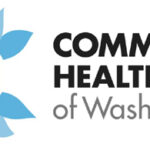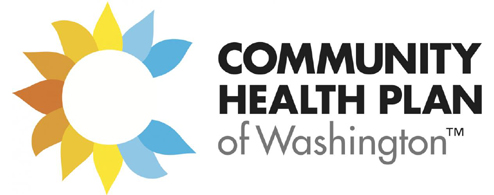Comprehensive Guide to Health Insurance in Washington State
Health insurance is an essential aspect of maintaining overall well-being, providing individuals and families with the necessary resources to access medical care when needed. In Washington State, a variety of health insurance options are available, catering to different needs and circumstances. This article aims to provide a comprehensive overview of health insurance in Washington, covering key aspects such as types of health insurance plans, the Washington Health Benefit Exchange, Medicaid and Medicare options, regulations, and tips for choosing the right plan.
Table of Contents:
- Introduction to Health Insurance in Washington State
- Importance of Health Insurance
- Overview of Health Insurance Landscape
- Types of Health Insurance Plans
- Individual and Family Plans
- Employer-Sponsored Plans
- Medicaid and Apple Health
- Medicare
- Washington Health Benefit Exchange
- Overview of Washington Healthplanfinder
- Enrollment Periods
- Financial Assistance
- Health Insurance Regulations in Washington
- Essential Health Benefits
- Coverage for Pre-existing Conditions
- Mental Health and Substance Use Disorder Coverage
- Tips for Choosing a Health Insurance Plan
- Assessing Your Healthcare Needs
- Comparing Plans and Costs
- Understanding Provider Networks
- Resources for Health Insurance in Washington
- Washington State Office of the Insurance Commissioner
- Local Health Insurance Navigators
- Conclusion
- The Importance of Regularly Reviewing Health Insurance Coverage
1. Introduction to Health Insurance in Washington State
Importance of Health Insurance: Health insurance plays a crucial role in ensuring access to medical care, providing financial protection against high medical costs, and promoting overall health and well-being. Without health insurance, individuals may face significant barriers to receiving necessary healthcare services.
Overview of Health Insurance Landscape: Washington State offers a diverse range of health insurance options, from private plans to public programs. The state has been proactive in implementing policies and programs to ensure broad access to affordable health coverage.
2. Types of Health Insurance Plans
Individual and Family Plans: These plans are purchased directly by individuals or families through the Washington Healthplanfinder or private insurance companies. They are suitable for self-employed individuals, those without employer-sponsored insurance, or those seeking specific coverage options.
Employer-Sponsored Plans: Many residents receive health insurance through their employers. These plans often offer comprehensive coverage and are partially funded by employers, making them a cost-effective option for employees.
Medicaid and Apple Health: Medicaid, known as Apple Health in Washington, provides free or low-cost health coverage to eligible low-income individuals and families. The program covers a wide range of services, including preventive care, hospitalization, and mental health services.
Medicare: Medicare is a federal program that provides health coverage for individuals aged 65 and older, as well as younger individuals with certain disabilities. Washington residents can choose from Original Medicare, Medicare Advantage plans, and supplemental plans to meet their healthcare needs.
3. Washington Health Benefit Exchange
Overview of Washington Healthplanfinder: The Washington Healthplanfinder is the state’s health insurance marketplace where individuals and families can compare and purchase health insurance plans. It offers a variety of plans from different insurers, making it easier to find coverage that fits different needs and budgets.
Enrollment Periods: Open enrollment typically occurs annually, providing a set period for individuals to sign up for or change their health insurance plans. Special enrollment periods may be available for those experiencing qualifying life events, such as marriage, birth of a child, or loss of other coverage.
Financial Assistance: The Healthplanfinder provides access to financial assistance for eligible individuals and families, including premium tax credits and cost-sharing reductions, which can help lower the cost of health insurance premiums and out-of-pocket expenses.
4. Health Insurance Regulations in Washington
Essential Health Benefits: Washington requires all health insurance plans to cover essential health benefits, including emergency services, hospitalization, maternity and newborn care, mental health and substance use disorder services, prescription drugs, and preventive services.
Coverage for Pre-existing Conditions: Under Washington State law, health insurance companies cannot deny coverage or charge higher premiums based on pre-existing conditions, ensuring that all residents have access to necessary medical care.
Mental Health and Substance Use Disorder Coverage: Washington mandates parity in coverage for mental health and substance use disorders, meaning these services must be covered at the same level as medical and surgical benefits.
5. Tips for Choosing a Health Insurance Plan
Assessing Your Healthcare Needs: Consider your healthcare needs, including any chronic conditions, medications, and preferred healthcare providers. This will help you determine the level of coverage and type of plan that best suits your needs.
Comparing Plans and Costs: Compare different plans based on premiums, deductibles, copayments, and out-of-pocket maximums. Understanding these costs can help you choose a plan that fits your budget while providing adequate coverage.
Understanding Provider Networks: Ensure that your preferred doctors, hospitals, and specialists are included in the plan’s provider network. Out-of-network care can be significantly more expensive, so choosing a plan with a broad network can help reduce costs.
6. Resources for Health Insurance in Washington
Washington State Office of the Insurance Commissioner: The Office of the Insurance Commissioner provides valuable resources and assistance for residents seeking health insurance coverage, including information on consumer rights, insurance complaints, and coverage options.
Local Health Insurance Navigators: Navigators are trained professionals who can help individuals and families understand their health insurance options, complete applications, and enroll in coverage through the Washington Healthplanfinder.
7. Conclusion
The Importance of Regularly Reviewing Health Insurance Coverage: Health insurance needs can change over time due to various factors such as changes in health status, income, or family size. It is important to regularly review your health insurance coverage to ensure it continues to meet your needs and provides adequate protection.
Health insurance is a critical component of accessing healthcare and maintaining overall health and well-being. In Washington State, a variety of health insurance options are available to meet the diverse needs of residents. By understanding the different types of plans, the Washington Health Benefit Exchange, and state regulations, individuals can make informed decisions about their health insurance coverage. Regularly reviewing and updating your health insurance plan can ensure that you and your family are protected against unexpected medical costs and have access to the necessary healthcare services.










